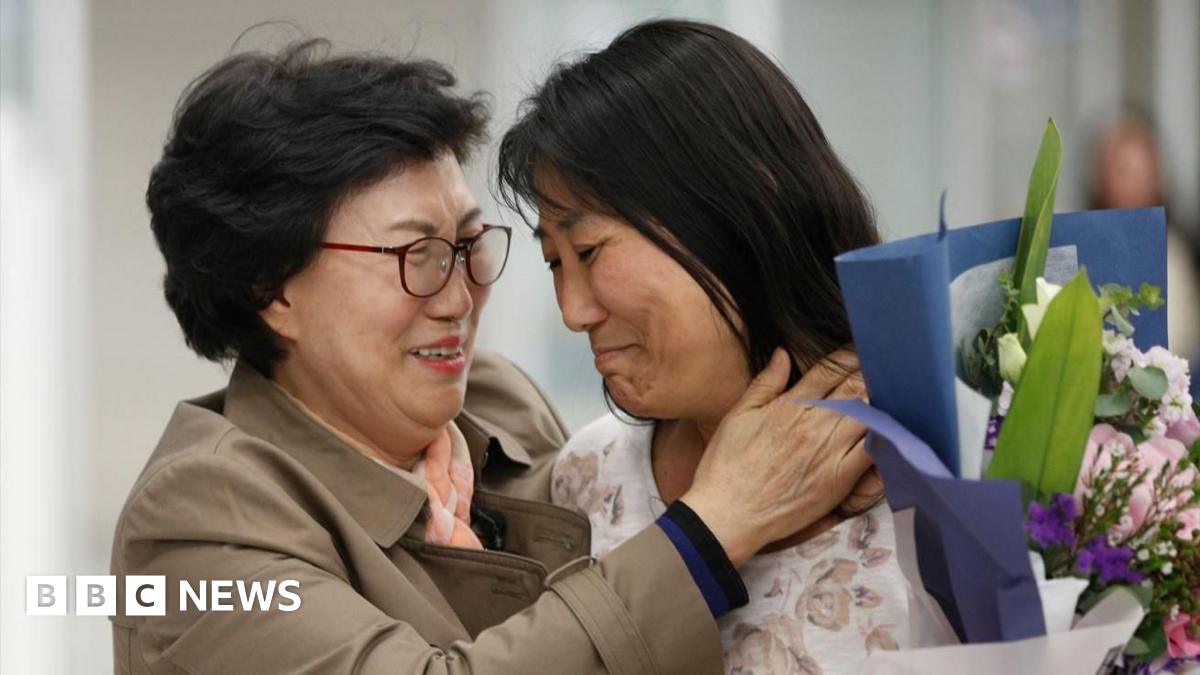South Korea And International Adoption: A Complex History In Focus

Welcome to your ultimate source for breaking news, trending updates, and in-depth stories from around the world. Whether it's politics, technology, entertainment, sports, or lifestyle, we bring you real-time updates that keep you informed and ahead of the curve.
Our team works tirelessly to ensure you never miss a moment. From the latest developments in global events to the most talked-about topics on social media, our news platform is designed to deliver accurate and timely information, all in one place.
Stay in the know and join thousands of readers who trust us for reliable, up-to-date content. Explore our expertly curated articles and dive deeper into the stories that matter to you. Visit Best Website now and be part of the conversation. Don't miss out on the headlines that shape our world!
Table of Contents
South Korea and International Adoption: A Complex History in Focus
South Korea's history with international adoption is a multifaceted and often emotionally charged topic. For decades, thousands of Korean children found new homes abroad, a narrative woven with threads of poverty, social stigma, and evolving ethical considerations. Understanding this complex past requires examining its historical context, the motivations behind the adoptions, and the ongoing debates surrounding them.
The Early Years: Post-War Poverty and Orphanages
The surge in international adoptions from South Korea began after the Korean War (1950-1953). Devastating poverty and societal upheaval left many children orphaned or abandoned. Overcrowded orphanages, often lacking resources, became a stark reality. This created a fertile ground for international adoption agencies, many operating with varying levels of transparency and oversight. The desire to provide a better life for these children, coupled with the limitations of the Korean welfare system at the time, fuelled a massive wave of adoptions, primarily to the United States, Canada, and Europe.
Motivations Behind Adoption: A Multi-Layered Perspective
Several factors contributed to the high rates of international adoption from South Korea. For some families, poverty and the social stigma associated with unmarried mothers led to relinquishing their children. The belief that foreign families could offer better opportunities also played a significant role. Furthermore, the Korean government, focused on rapid economic growth, viewed international adoption as a solution to the problem of orphanages and a way to alleviate social burdens.
Ethical Concerns and the Changing Landscape
The sheer scale of adoptions raised significant ethical questions. Critics pointed to potential coercion, lack of informed consent, and the often-blurred lines between genuine care and profit-making within some adoption agencies. The absence of comprehensive records and the difficulties faced by adoptees seeking information about their origins exacerbated these concerns.
Over time, South Korea implemented reforms aimed at improving child welfare and reducing the number of international adoptions. Increased emphasis on domestic adoption and improved social support systems has dramatically reduced the outflow of children. The focus shifted towards supporting families and preventing abandonment.
The Search for Identity and the Adoptee Community
For many adoptees, the journey to understand their roots and heritage is a central life experience. The quest for identity, grappling with cultural differences, and navigating complex emotions associated with relinquishment are common themes within the adoptee community. Support groups and online forums provide essential spaces for sharing experiences, connecting with birth families (where possible), and advocating for greater transparency and access to information.
Looking Ahead: Lessons Learned and Ongoing Challenges
South Korea’s experience with international adoption serves as a powerful case study in the interplay between social policy, ethical considerations, and human rights. While the numbers have significantly decreased, the legacy of this historical period continues to shape the lives of countless individuals. Ongoing discussions focus on improving inter-country adoption practices globally, ensuring ethical standards are upheld, and supporting both adoptees and their families. The story of South Korea and international adoption is one that demands continued attention, ensuring the lessons learned inform future policies and promote the well-being of vulnerable children worldwide.
Keywords: South Korea, international adoption, Korean adoption, adoptees, orphanage, child welfare, ethical concerns, social stigma, family reunification, cultural identity, post-war Korea.

Thank you for visiting our website, your trusted source for the latest updates and in-depth coverage on South Korea And International Adoption: A Complex History In Focus. We're committed to keeping you informed with timely and accurate information to meet your curiosity and needs.
If you have any questions, suggestions, or feedback, we'd love to hear from you. Your insights are valuable to us and help us improve to serve you better. Feel free to reach out through our contact page.
Don't forget to bookmark our website and check back regularly for the latest headlines and trending topics. See you next time, and thank you for being part of our growing community!
Featured Posts
-
 Fin De Route Pour Adrian Mannarino Aux Internationaux De France
May 25, 2025
Fin De Route Pour Adrian Mannarino Aux Internationaux De France
May 25, 2025 -
 Was Barron Unfairly Rejected By Harvard Examining The Admissions Process
May 25, 2025
Was Barron Unfairly Rejected By Harvard Examining The Admissions Process
May 25, 2025 -
 Unbelievable Athleticism Deconstructing Johan Rojas Historic Catch
May 25, 2025
Unbelievable Athleticism Deconstructing Johan Rojas Historic Catch
May 25, 2025 -
 Yachts A New Smuggling Route For Migrants Entering The Uk
May 25, 2025
Yachts A New Smuggling Route For Migrants Entering The Uk
May 25, 2025 -
 Is Global Travel Slowing Down Experts Urge Loyalty Point Redemption
May 25, 2025
Is Global Travel Slowing Down Experts Urge Loyalty Point Redemption
May 25, 2025
Latest Posts
-
 Trans Doctor Nurse Clash Fife Nhs Tribunal Hearing Resumes
Jul 17, 2025
Trans Doctor Nurse Clash Fife Nhs Tribunal Hearing Resumes
Jul 17, 2025 -
 Nhs Fife Nurse And Trans Doctor Dispute Tribunal To Resume
Jul 17, 2025
Nhs Fife Nurse And Trans Doctor Dispute Tribunal To Resume
Jul 17, 2025 -
 Love Island Fallout Amaya Espinal On Cierra Ortegas Racist Remarks
Jul 17, 2025
Love Island Fallout Amaya Espinal On Cierra Ortegas Racist Remarks
Jul 17, 2025 -
 Bryson De Chambeau On Public Course Difficulty A Surprising Take
Jul 17, 2025
Bryson De Chambeau On Public Course Difficulty A Surprising Take
Jul 17, 2025 -
 Urgent Flood Warning Powerful Storm Heads Toward Floridas Gulf Coast
Jul 17, 2025
Urgent Flood Warning Powerful Storm Heads Toward Floridas Gulf Coast
Jul 17, 2025
